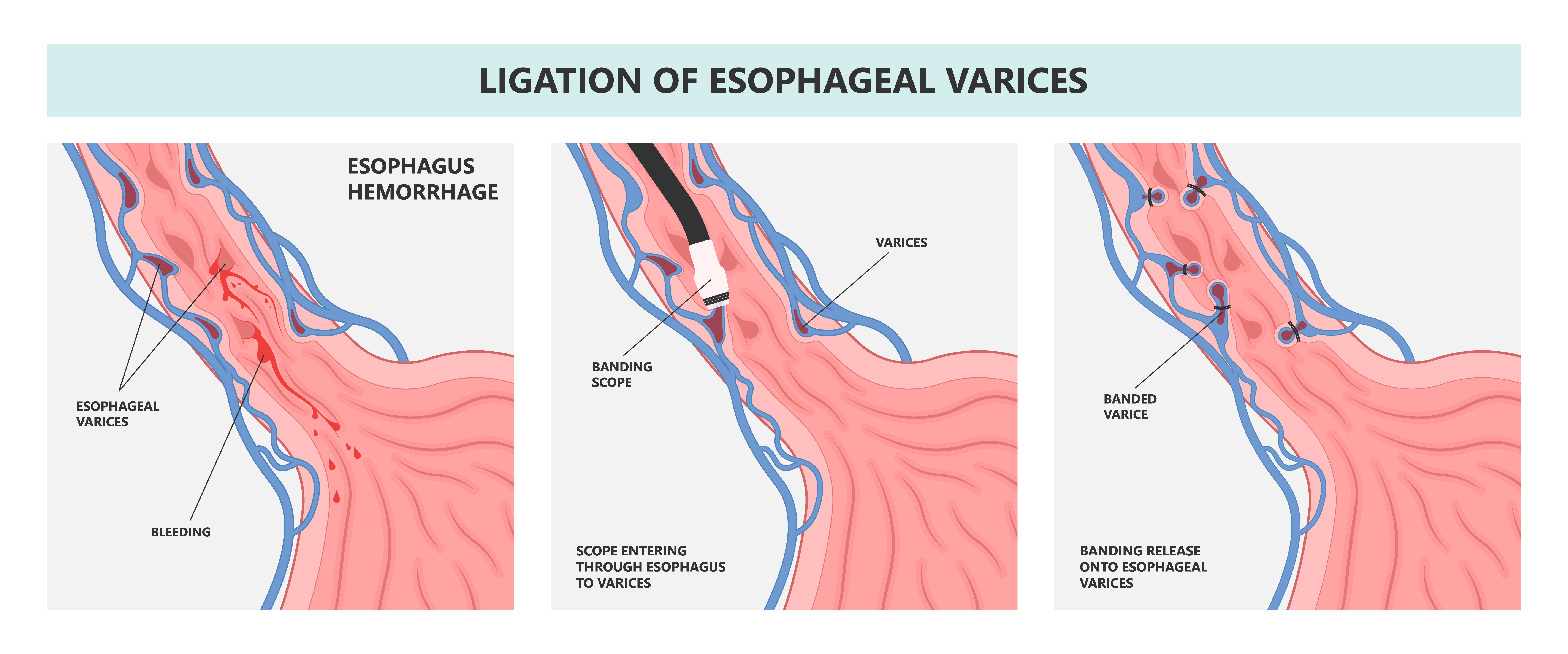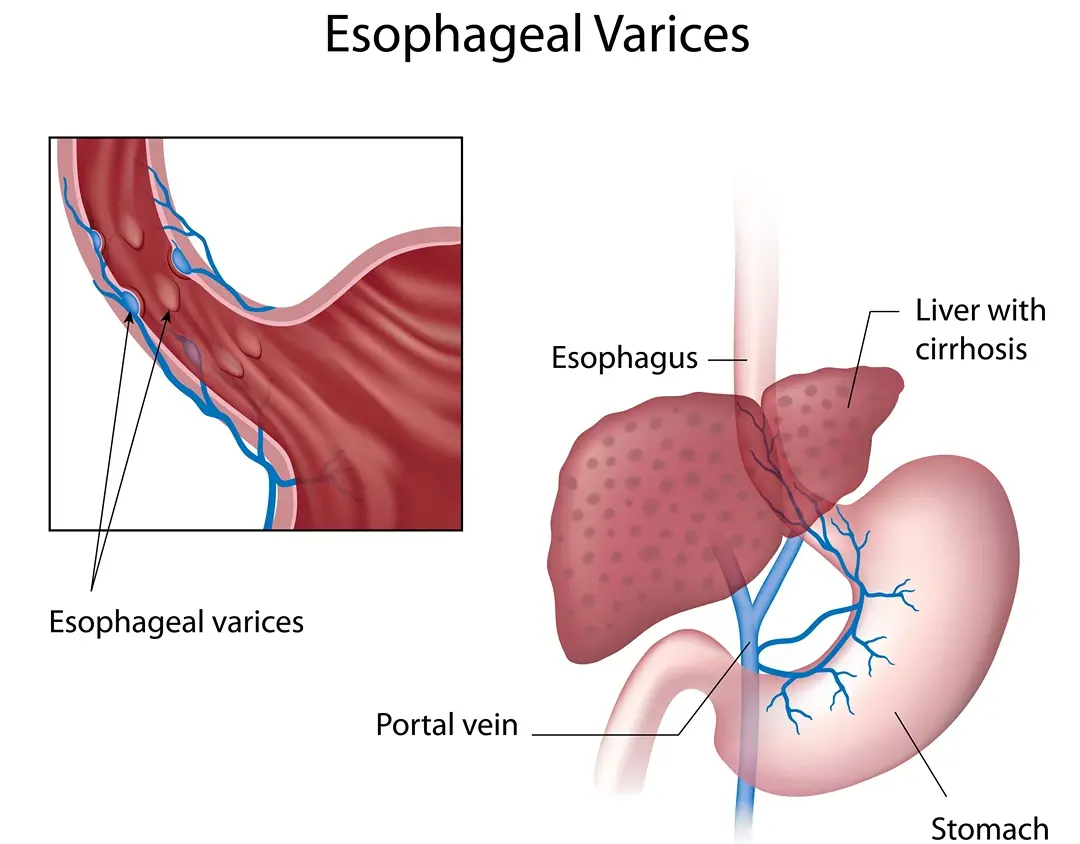Esophageal Varices Ligation in Dubai at DRHC
Liver Cirrhosis is an irreversible end-stage of progressive active hepatic fibrosis. Patients diagnosed with cirrhosis are susceptible to several complications, and their life expectancy is usually dependent on them.
What are Esophageal Varices?
The resistance in the cirrhotic liver will lead to an increase in the pressure of the vessels proximal to it, causing Esophageal varices, which are swollen blood vessels in the esophagus (the tube that connects the mouth to the stomach).
The Symptoms:
Symptoms of bleeding from esophageal varices are:
- Dark-colored or black bowel movements
- Vomiting blood
- Bloody bowel movements or diarrhea
- Fainting
- Dizzy
Recently diagnosed cirrhotic patients should have routine gastroscopy because esophageal varices do not lead to any symptoms until they start to bleed, and this condition could even be fatal.
If you have liver disease and feel one or more of these symptoms, you should call for an ambulance and go to the emergency department. You should not drive yourself during an emergency; ask any relative, a family member, or any other person to drive you instead.
Frequent Check-up:
Endoscopy is necessary every 1 to 3 years if you have active cirrhosis. The physician will examine to see if you have developed new varices or if the previous ones are getting larger.
Treatment:
Treatments that can make varices less likely to bleed include:
- Beta-blockers such as propranolol are used to treat hypertension as well.
- Weight management.
- Avoiding alcohol consumption.
- Taking the medications.
Esophageal Varices Ligation:
If varices are bleeding, the doctor can do an endoscopy procedure called "variceal band ligation". During this procedure, the doctor will place tiny rubber bands around the varices to close them and thus stop them from bleeding. Medications that reduce the amount of acid in your stomach are also needed while the varices heal, as prescribed by the doctor. In some cases, doctors may have to inject the medications intravenously, such as octreotide, vasopressins, or PPIs, continuously.
After the procedure, patients are asked to stay on a diet of liquids and cold food for 3 days.

How frequently:
Variceal band ligation has to be repeated every 4 to 8 weeks until the varices are healed. "TIPS" is a procedure for people who have severe and refractory bleeding. For this procedure, a doctor inserts a thin tube through a vein in the neck and places the tube inside the liver, which helps blood to flow through the liver more easily. This lowers the blood pressure in the varices and helps stop bleeding.
Esophageal varices prevention:
- The treatment of the underlying liver disease that caused cirrhosis might help prevent varices.
- Treating the esophageal varices as early as diagnosed also helps to prevent any future varices.
.png?width=281&height=59&name=bookanappointment%20(1).png)
If you are due for an Esophageal Varices Ligation or are experiencing gastrointestinal symptoms, don't delay. Contact DRHC Dubai to schedule your colonoscopy appointment. Our team of experts is here to provide you with compassionate care and personalized treatment to keep your digestive health in check. To book Your Appointment, just call us at +97142798200 for a consultation with the Gastroenterology Clinic at DRHC Dubai.





.png?width=281&height=59&name=bookanappointment%20(1).png)




